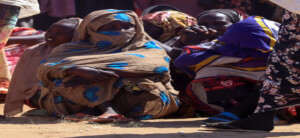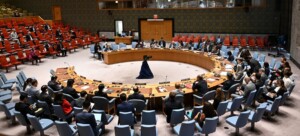Sudan’s RSF militia denies involvement in Libya
The Rapid Support Forces (RSF), the militia established under the ousted Al Bashir regime and is now part of the Sudan Armed Forces, denies accusations that it is involved in the conflict in Libya.
 A RSF militiaman standing near a damaged vehicle in East Jebel Marra in January 2015 (Sudan Armed Forces)
A RSF militiaman standing near a damaged vehicle in East Jebel Marra in January 2015 (Sudan Armed Forces)
The Rapid Support Forces (RSF), the militia established under the ousted Al Bashir regime and is now part of the Sudan Armed Forces, denies accusations that it is involved in the conflict in Libya.
The accusation was made by a Libyan delegate at the League of Arab States in the end of December. He claimed RSF militiamen were fighting in Libya and described them as “Sudanese mercenaries”.
In a press conference yesterday, RSF spokesman Brig Gen Jamal Juma said that these accusations are “false and unfair to the truth”.
Juma called on the Libyan delegate to be careful in choosing his words and making accusations against neighbouring countries. “No RSF member is deployed outside Sudan, except for the Saudi Arabia campaign [against the Houthi rebels in Yemen]”, he stressed.
He pointed to video recordings posted on social media of a person called Mohamed Ajabeldor “who claims to be an RSF commander having the rank of Major and who joined the fighting in the Libyan conflict”.
Ajabeldor does not belong to the RSF, the spokesman asserted. He was an officer of the Border Guards government militia, with the rank of major, before the Border Guards merged with the RSF. He was dismissed from service when he did not register himself to join the RSF.
Radio Dabanga reported in July that 1,000 RSF militiamen arrived in Libya to support Gen Khalifa Haftar. Reliable sources claimed that 3,000 more militiamen were to follow.
The RSF detained a group of men in 2017 who planned to recruit fighters for the war in Libya. They have been tried by the Anti-Terrorism Court.
The militia spokesman further emphasised the importance of the RSF militia for the stability in neighbouring countries.
Our editorial independence means that we can continue to provide factual updates about ongoing protests to Sudanese and international actors, educate people about how to avoid outbreaks of infectious diseases, and provide a window to the world for those in all corners of Sudan. Support Radio Dabanga for as little as €2.50, the equivalent of a cup of coffee.












 and then
and then